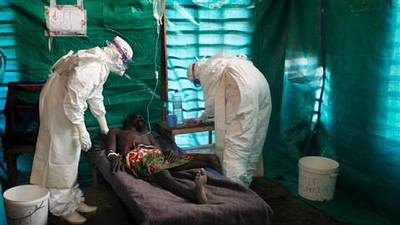 Springer has just published our new book, Neoliberal Ebola: Modeling Disease Emergence From Finance to Forest and Farm.
Springer has just published our new book, Neoliberal Ebola: Modeling Disease Emergence From Finance to Forest and Farm.
It is arguably one of the more sophisticated treatments of globalization’s impact on disease to date, combining economic geographies with epidemiological modeling and the political economies of agriculture and science.
Learn more about the book’s scope, and access its preface and table of contents, at the book website.
With Zika and now yellow fever emerging out of a similar juxtaposition of laissez-faire agroeconomics and structurally adjusted public health, the arguments of the book are as apropos as they were way back in 2014.
The volume is academically priced, but we encourage those unable to afford it to
- ask their local library to purchase a copy
- consider purchasing a MyCopy print-on-demand for $25 through your local research institution.
Our team is proud of the volume. We hope it marks a turning point in the means by which the new diseases are conceptualized and–the point of it all–controlled.


